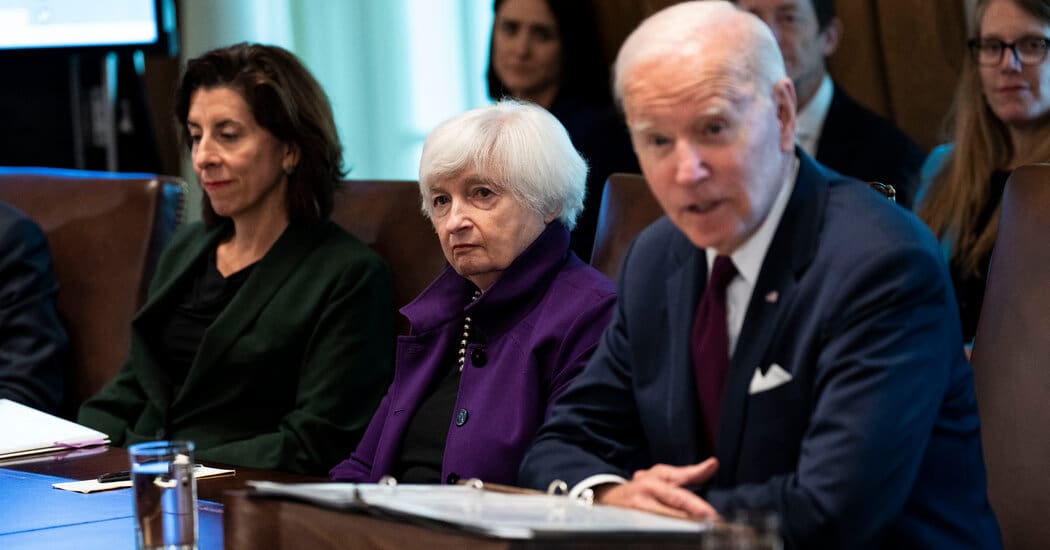
Biden Administration Faces Challenges Implementing New Corporate Minimum Tax
The implementation of President Biden’s new corporate minimum tax, one of the most significant changes to the U.S. tax code in decades, has become a daunting task for the administration. The law, which aims to prevent large corporations from paying zero federal taxes, has faced intense lobbying from industries seeking lenient interpretations and new loopholes. Republican lawmakers have attempted to repeal the law, while Democrats like Senator Elizabeth Warren have urged strict enforcement.
The corporate minimum tax, set to take effect in the 2023 tax year, aims to capture tax revenue from companies that report profits to shareholders but utilize deductions to lower their tax bills. Many large companies, such as FedEx, Duke Energy, and Nike, have been able to pay little to no federal taxes through various deductions and strategies. A 2021 report found that 55 of the nation’s largest companies paid no federal income tax the previous year.
The new tax could have a significant impact on companies like Amazon and Berkshire Hathaway, which have had effective tax rates in the single digits in recent years. However, Warren Buffett, CEO of Berkshire Hathaway, expressed support for the tax, stating they would find ways to comply once the rules were established.
While the tax primarily targets large corporations, smaller businesses are concerned about potential inclusion if the regulations lack clarity. CenterPoint Energy, a Texas-based public utility company, voiced concerns that it could be unfairly targeted due to a sale that raised its revenue, potentially subjecting it to the corporate minimum tax.
The Treasury Department is expected to release the final rules for the tax before the end of the year. The department has already made concessions to the insurance industry, ensuring that companies will not be required to make quarterly tax payments related to the new minimum until all regulations are clarified.
The tax applies to corporations reporting annual income of over $1 billion to shareholders but reducing their effective tax rate below the statutory 21 percent. It is projected to raise over $200 billion over a decade. Businesses potentially facing the tax have been heavily lobbying to shape its scope and minimize their exposure.
Many sectors, including energy companies, the film industry, financial firms, and foreign companies operating in the United States, are particularly concerned about the tax’s impact. The measure has added complexity for businesses that invested in the United States, as it requires reconciling different measures of a company’s performance.
Despite lobbying efforts, most companies are still uncertain about how the tax will work and how much they should be concerned. Tax and accounting experts have warned that this type of corporate minimum tax is challenging to implement and may encourage companies to seek out new loopholes.
Efforts to overturn the tax will continue, but the Biden administration remains committed to ensuring that large and profitable corporations pay their fair share. The Treasury Department is focused on developing workable and administrable rules to enforce the corporate minimum tax.
In conclusion, the implementation of President Biden’s new corporate minimum tax has proven to be a significant challenge for the administration. The law aims to prevent large corporations from avoiding federal taxes, but lobbying from industries and the need to define and clarify the tax’s rules have complicated the process. Despite uncertainty and concerns, the Treasury Department is working to ensure that the tax is enforced fairly and effectively.
Original Story at www.nytimes.com – 2023-09-07 09:02:35


Comments are closed.